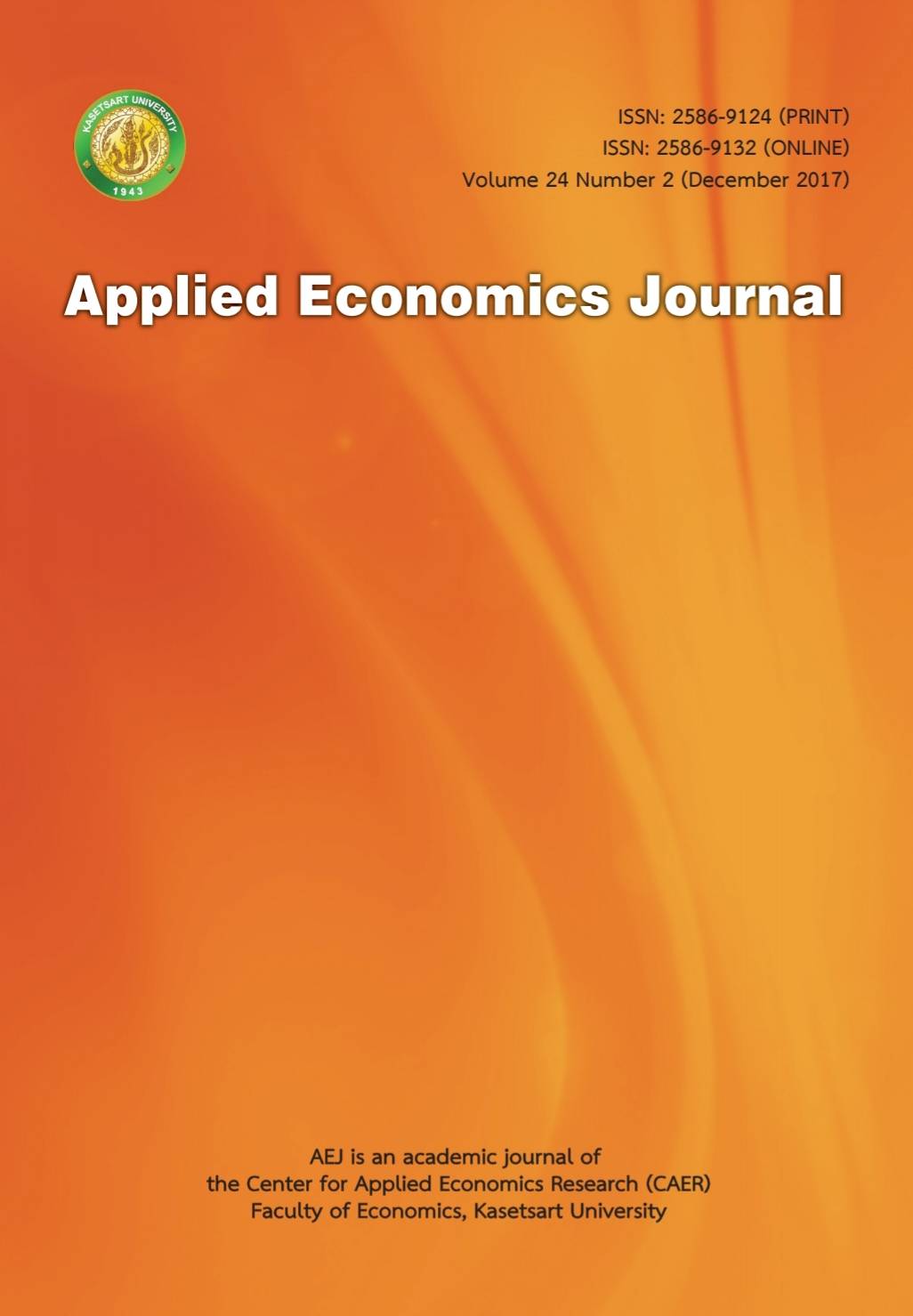The Linkage between Bank Competition and Stability: New International Evidence
Main Article Content
Abstract
It has been known among researchers that the relationship between bank competition and financial system stability is very complex. This paper, therefore, attempts to fill in the literature gap of the competition-stability nexus by using a sample of 81 countries including both developed and developing countries during the year 2000 to 2013. The results from fixed effect panel regression technique reveal that proxies for bank competition, specifically market concentration and market pricing power, have opposite effects on financial system stability. Therefore, in order to enhance the stability of the financial system, the policy makers need to consider the policy that (1) makes the market to be less monopolized by a few key players and (2) ensures that all players have enough margins to withstand economic fluctuation. In addition, these two competition measures together with three bank-specific variables, namely efficiency, revenue diversification and portfolio risk, can well explain the variation of financial system stability in the sampling countries and periods. The results are robust to an array of alternative variable specifications.
Article Details
The paper is published under CC BY-NC-ND, in which the article is freely downloaded and shared in its original form non-commercially and its citation details are identified.


